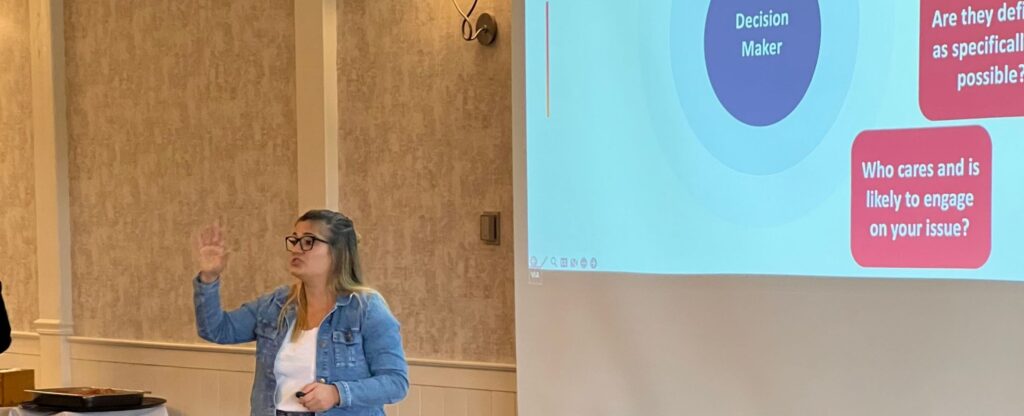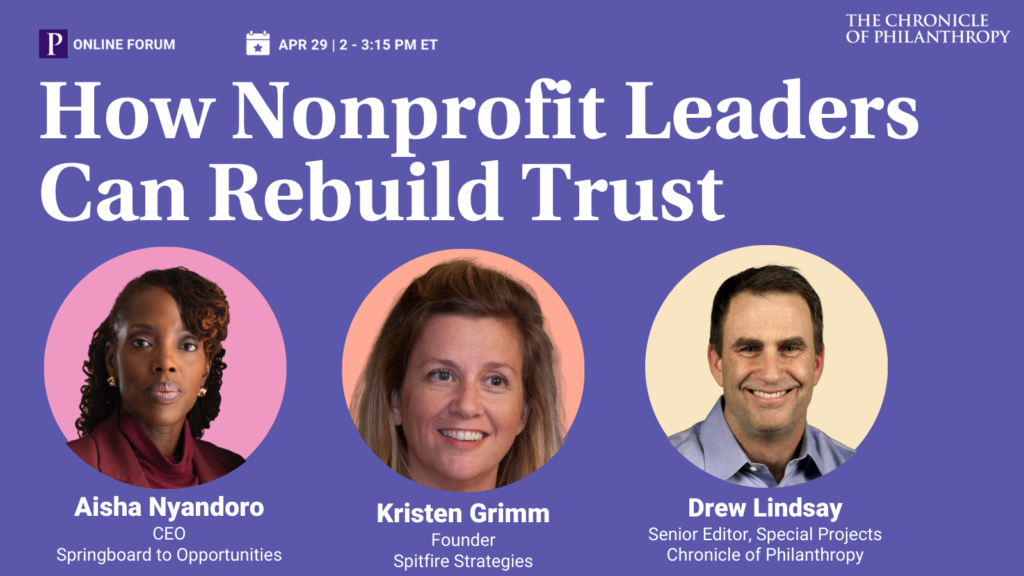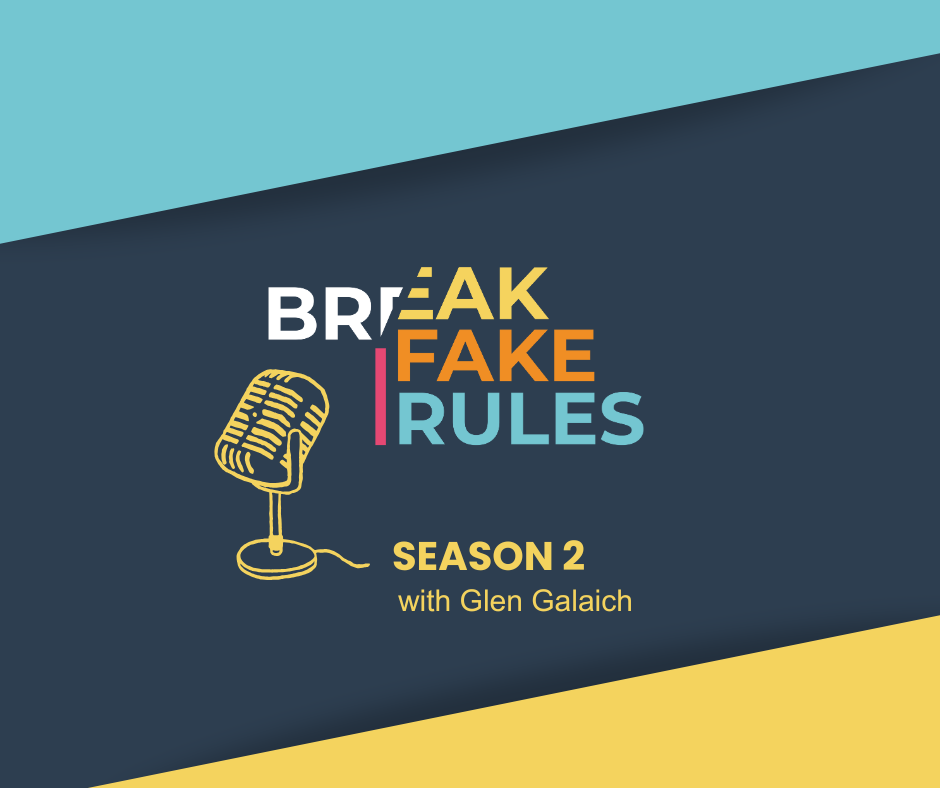
Move From Naming to Solving ͏ ͏ ͏ ͏ ͏ ͏ ͏ ͏ ͏ ͏ ͏ ͏ ͏ ͏ ͏ ͏ ͏ ͏ ͏ ͏ ͏ ͏ ͏ ͏ ͏ ͏ ͏ ͏ ͏ ͏ ͏ ͏ ͏ ͏ ͏ ͏ ͏ ͏ ͏ ͏ ͏ ͏
Folks, I don’t think we need any more polling or research to know broadly how things are going and how we should respond. If there is any good in this, there is a shockingly evident need for people to have a clear sense of what they are fighting for and a strong plan to communicate how they are showing up — no matter their issue or industry. In other words, we have to move — literally and figuratively.
- We have to move from fear to action. We have to move from naming the chaos to naming solutions because the sentiments of a broken system will still be there when the next election season rolls around.
- We have to move out of our comfort zones. We should be building coalitions and bringing people into our movements, communicating with messaging that is clear about where we stand on our values — and on solutions.
So, what does this mean for your communications strategy?
- Planning: Your strategic communications goals and objectives are more important than you may think.
- Mapping: Your plans should strategically put you in places, in outlets and on social platforms that reach the people and decision-makers who are critical to your issues.
- Connecting: Your language should be clear, collaborative and compelling. Building community means we need to take close looks at whom we’re excluding with our communications.
- Solving: Your messaging should not only name problems and unjust systems but solutions too. Audiences made it clear that they are invested in hearing about fixes to the issues they are facing, not just rhetoric. We have to show them what we stand for, not just what we are against.
People still feel disconnected and disempowered, and it will take work to build trust, but we can start that work today. I’d love to hear how your team is moving in this moment. If you need support refining or setting clear goals, let us know.

Jen Carnig
President, Spitfire Strategies

Read Spitfire Takes
Op-Eds Are Everyone’s Go-To Tactic. But Is There an Easier Way?
By Adam Bink and Daniela Ramirez
We’ve placed hundreds of op-eds and reviewed thousands of drafts at Spitfire and over the course of our careers. Last month, the New York Times editor told us they had received the most op-ed submissions in the publication’s history. Whether you are trying to pitch nationally or locally, here are guidelines we recommend before you flesh out a draft, run it through reviews and hit that submit button. Learn more.
Our Stories Matter Now More Than Ever
By Ben Christiason
Spitfire is proud to share personal reflections from our own Ben Christiason on the power of storytelling at a time when civil rights are under attack. This is the time to validate and nurture stories for trans people instead of stories that seek to justify trans people’s existence in the first place. Keep reading.
No Better Time to Majority-Make
By Kristen Grimm
How can you expand support for the issues and causes you’re championing? In a recent SpitfireU session, we explored seven strategies that are ripe for trying if you want to majority-make. Learn more and catch the recording here.

Learn With Us

Nonprofits often have small communications teams and punch far above their weight to support their communities. Melanie Moon shares 3 tips for small comms teams.
Want hands-on training? Join Melanie for the Small and Mighty Communications Series: In May, Spitfire is launching a new online training to share strategies with team-of-one communicators. In five sessions, we’ll cover what it takes to effectively run a communications operation. These interactive sessions include time to share with colleagues in similar positions at other organizations so you can build a circle of peers that will outlast the training series. Save your spot now.

Meet Our Newest Spitfires

Aketa Marie Williams, Head of Learning
We are thrilled to welcome back Aketa to Spitfire! As head of learning, Akita oversees Spitfire’s training and learning efforts to support social good leaders and communicators. Previously, Aketa led communications at Sierra Health Foundation, Office of the Under Secretary at the U.S. Department of Education, to multiple roles within the Office of Legislation and Congressional Affairs. Learn more about Aketa.
Thomas Daaton, Account Coordinator
With years of experience in public health, environmental sustainability and higher education, Thomas has dedicated his career to supporting equitable social change. He is particularly passionate about conservation efforts and economic development. Learn more about Thomas.


Hannah Enzell, Account Coordinator
Hannah is a writer, advocate and proud Texan who is passionate about using language to impact social change. Her experience in politics, communications, anti-gun violence and reproductive rights advocacy led her to Spitfire. Learn more about Hannah.

See What’s Sparking Change

How Nonprofits Can Rebuild Trust with America
Apr. 29, 2025 | 11:00 a.m. PDT
Trust in American institutions — including nonprofits and philanthropy — has been falling for many years. What can individual charities and grant makers do to reverse the trend and boost trust in their organizations?
Spitfire’s Founder Kristen Grimm dug into this question with funding from the Robert Wood Johnson Foundation. The result is a “Replenishing Trust” playbook for how nonprofits can tackle the trust deficit.
Kristen will join Chronicle of Philanthropy to discuss her analysis and suggest strategies leaders can use to build trust in their organizations. She’ll be joined by Aisha Nyandoro, CEO of Springboard to Opportunities, a Mississippi nonprofit that supports residents of federally subsidized housing. Nyandoro models some of the best practices Spitfire highlights. Register now.

🎙️ Tune into the new season of “Break Fake Rules”🎙️
The “Break Fake Rules” podcast is back! Join Stupski Foundation CEO Glen Galaich for a brand new season of conversations featuring inspiring rule-breakers in philanthropy, media, government and more. Be part of the conversation that pushes philanthropy to confront its self-imposed rules to change the future of giving.

Have thoughts you’d like to share? Feel free to reach out. We’d love to feature you in our next issue.
